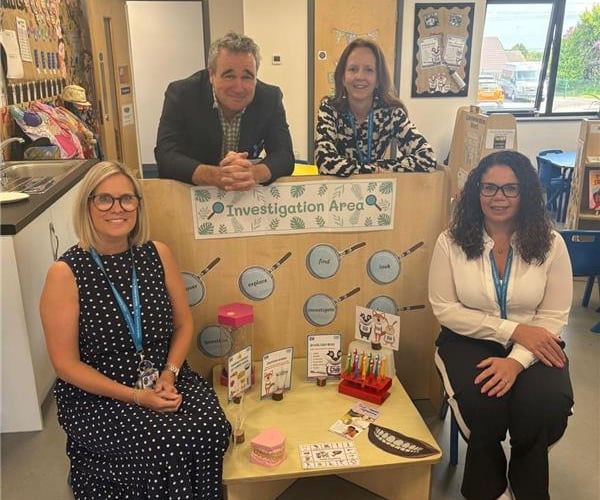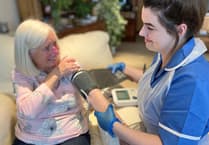MORE than 10,000 young children across Cornwall are now taking part in daily supervised toothbrushing sessions at school, following the county-wide expansion of the Big Brush Club – a preventative health initiative aimed at tackling childhood tooth decay.
The programme, which teaches children aged three to five how to brush their teeth effectively using fluoride toothpaste, is now being offered to all primary schools in the county, along with selected nurseries.
Backed by the NHS and delivered by At Home Dental, the initiative is designed to improve long-term oral health and reduce dental inequalities from an early age.
The programme encourages children to brush their teeth with fluoride toothpaste at least once a day—ideally twice—under adult supervision at school. It forms part of a wider effort to reduce oral health inequalities and prevent tooth decay from an early age.
During a visit to Bugle School, Dr Chris Reid, Chief Medical Officer for NHS Cornwall and the Isles of Scilly, praised the initiative and the enthusiastic support from schools.
“It’s great to see how supportive schools in Cornwall are of this forward-thinking, early intervention work,” he said. “In 2022, an oral health survey found nearly 20% of five-year-olds had tooth decay. Teaching children how to brush properly can make a real difference.”

The Big Brush Club originally launched in areas of the South West with the highest rates of dental decay. Previously, 180 schools in Cornwall took part, involving around 7,900 pupils. That number has now risen to over 10,000, thanks to the scheme’s proven success and wider backing.
Delivered in partnership with local authorities, the programme integrates daily brushing into the school routine, alongside lessons on self-care, healthy eating, and reducing sugar consumption. It also supports national education policies that promote water as the drink of choice and discourage sugary snacks.
At Bugle School, staff say the benefits are already clear. Deputy Head Chantelle McKernan said: “Since joining the programme, we’ve seen a real improvement in pupils’ understanding of good dental habits. It’s also helped raise awareness among parents, creating healthier routines at home.
“We’re proud to be part of the Big Brush Club and we encourage other schools to join this important mission to support children’s wellbeing.”
Tooth decay remains a serious health issue in the South West, despite being largely preventable. It’s still the leading cause of hospital admission for children aged six to ten. NHS England’s South West Dental Public Health Consultant, Reena Patel, highlighted the wider impact of poor oral health.
“Tooth decay can cause pain, infections, and difficulties with eating, sleeping, and learning,” she said. “This leads to missed school days and parents taking time off work. The Big Brush Club supports families to develop lifelong habits that can prevent these issues.”
Supervised toothbrushing is endorsed by the National Institute for Health and Care Excellence (NICE) as a cost-effective way to tackle dental decay. Research shows that for every £1 spent on the programme, there is a £3 return in saved NHS and school resources – alongside improved health outcomes for children.

.jpeg?width=209&height=140&crop=209:145,smart&quality=75)



Comments
This article has no comments yet. Be the first to leave a comment.